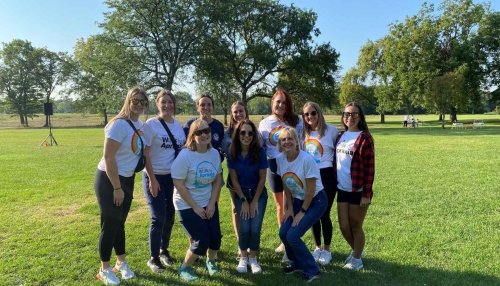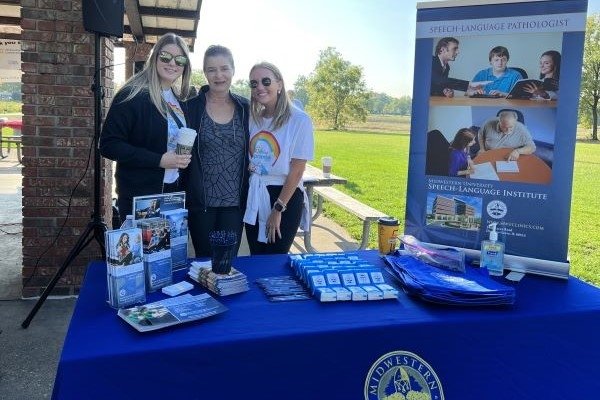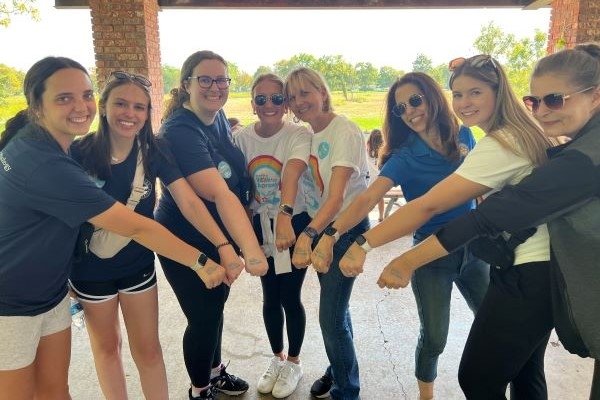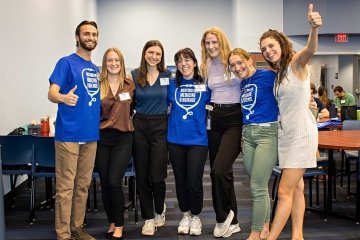Midwestern University Students Raise Awareness about Apraxia
Midwestern University Students participated in the Chicago Walk for Apraxia.
- IL - Downers Grove

National Student Speech Language Hearing Association Members (NSSLHA) members joined the Chicago Walk for Apraxia.
The Midwestern University student chapter of the National Student Speech Language Hearing Association (NSSLHA) participated in the Chicago Walk for Apraxia. Patients with apraxia have difficulty speaking and executing gestures and movements despite having the desire and physical ability to carry out these actions, according to the National Institute of Neurological Disorders and Stroke. Midwestern University students wanted to raise awareness about apraxia, and they shared their experiences at the walk.

Speech-Language Pathology student Gabby Kaminski (SLP ’26) said, “It’s about getting the apraxia name out there, what it is, and how it can affect them.” Speech-Language Pathology student Kaiyli Whelan (SLP ’26) said, “Every child with apraxia is different. Every child has their own way to be successful, especially in school and their social community. It is about understanding that and being supportive of their different needs to be successful. You don’t realize how many people have apraxia, and how many are impacted by it. It was an opportunity to get involved in the community and see what it’s like for kids and families to live with apraxia.” She also mentioned that it was heartening to see the support system apraxia patients have from their families. Gabby added that the event was a positive experience, and said the emotions of the parents of kids with apraxia affected her. “These kids don’t have a voice, and events like this give them a voice. It lets all the kids out there know they’re not alone.”
Events like the apraxia walk are an important part of Midwestern University’s commitment to healthcare. “It’s a good way to represent Midwestern University in a positive way,” Kaiyli said. She added there was an interdisciplinary element to the walk with participants in other healthcare fields. “It gives you a better understanding of what the other healthcare professionals do. It gives you an opportunity to build your skills.” Gabby added it is important “just to have the knowledge of apraxia to use for your future practice, for sessions, and to create treatments.” She also said the event also “lets families know what Midwestern University is about, and they can come to us if their child needs services.”

Apraxia treatment and other services are offered at the Midwestern University Clinics in Downers Grove and Glendale. Volunteering at events like these is part of the educational experience at Midwestern University to prepare students for their future careers as healthcare professionals. Speech-Language Pathology student Chloe Jackson (SLP ’26) said, “We have such knowledgeable and wonderful professors teaching us. We had opportunities to be cochairs in this event, practice in the Simulation Center, and opportunities to work in the community. We also have a variety of clients to work with.” Apraxia is one of the conditions examined in the Speech-Language Pathology programs in Downers Grove and Glendale.


